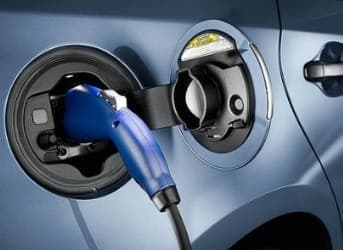A new ruling requires US automakers to more than double average fuel economy by 2025 in a move that will push up prices for cars but more than offset the cost in fuel savings, but the longer-term effect will be to benefit the hybrid car industry.
The new CAFÉ (corporate average fuel economy) requirements released on Wednesday aim to reduce US oil consumption by 12 billion barrels by 2025.
“By the middle of the next decade, our cars will get nearly 55 miles per gallon, almost double what they get today,” Obama told US media in an e-mailed statement. “It’ll strengthen our nation’s energy security, it’s good for middle class families and it will help create an economy built to last.”
Specifically, the new rules apply to vehicles manufactured between 2017 and 2025 and are the culmination of a deal cut with automakers last November. Under the ruling, US automakers must improve car fuel economy by an average of 5% annually for passenger vehicles, and 3.5% for trucks.
More than anything, though, the rules serve as incentives for natural-gas-powered and electric hybrid cars, which haven’t been faring as well as hoped lately. To this end, CAFÉ offers some extra incentives.
It will cost over $190 billion to implement the ruling, along with another fuel economy ruling that took effect earlier this year and concludes in 2016. But the administration says the savings in fuel spending will far outweigh this, at an estimated $515 billion.
For the consumer, the new rules will increase the cost of a car from $1,800-$2,800 by 2025, but drivers will save between $5,800 and $7,400 on fuel for the life of a single vehicle.
What does the auto industry make of this? Well, General Motors and Chrysler Group LLC are satisfied, but they are recipients of government bailouts. German-based Daimler AG and Volkswagen AG balked at the favoritism of the ruling towards light trucks made by US manufacturers. Honda also complained about the ruling, but in the final version it was given a boost in the form of additional credits for sellers of natural-gas-powered vehicles, and the Tokyo-based carmaker is the only seller of such vehicles in the US.
Manufacturers of electric cars will be the biggest beneficiaries of the ruling. Smaller electric car manufacturers like Tesla, for instance, will be able to sell credits they accumulate for exceeding the new fuel-economy rates to companies who fail to meet their own quotes.
Despite a $7,500 tax credit for US buyers of electric vehicles, sales have not been as high as expected. In fact, the Chevrolet Volt recently hinted that it may halt production of the car for four weeks in September-October due to lower-than-targeted sales. Nissan’s Leaf electric car has also come in under projected sales. The top selling electric car is Toyota’s Prius, which according to Bloomberg sold 136,463 units in 2011.
What does this mean for consumers? This is where it gets more complicated. According to the Washington Post, the new rules will mean that new cars will average around 45 miles per gallon, with trucks averaging around 32 miles per gallon. But there are other ways automakers can meet the new fuel-economy requirements, including by using less polluting air conditioning refrigerants.
The new rules will also require new technology like automatic shut-off systems, smaller turbocharged engines, direct fuel injection and lighter weight body materials to name a few.
The bottom line is that you may be leaning towards an electric or hybrid car sooner than you think. Prices for conventional vehicles will increase under the new rules and the market for alternatives—from electric and natural-gas powered to hydrogen and diesel--will benefit. This is the main goal of the fuel-economy standards, after all, and it is a far cleverer way than subsidies.
By. Charles Kennedy for Oilprice.com



















Consider: in 1982 the typical five liter American V8 made about 130 horsepower and was installed in a 3500-lb sedan. Awesome performance? No, but it got you there. Just about every auto maker now produces a four-banger making twice that--250 hp. Yet we're still stuffing V8s (which now make 400 horses) in everything we build, especially the 5000 pound trucks every mother needs.
It's utter madness. Build normal cars and station wagons, put them on a diet (there is no way on Earth today's passenger cars need to weigh 4,000 pounds) and install nice peppy 200-horse four-bangers in them with CTVs. They'll all be getting 40mpg tomorrow and no one but the brainless hot rodders at R&T will notice the missing torque.
Social Insecurity: MANDATED
Medicare: MANDATED
Oboma care: MANDATED
CAFE Standard: MANDATED
Minimum wages: MANDATED
No Smoking in Bars: MANDATED
The list is endless, BMZ.
BTW, I too wanted to drive a CNG car, however, in Maoisota, we have only a single station in the entire state..
Today in Europe we have cars that can to 70-80 mpg already. I totally agree with Edward, stop dropping in huge V8s and use smaller engines for goodness sake. You don't need such huge cars to get around.
Realistically, the price of gas is not going down. The only way to pay less is to buy less. And those kind folks that sell it want us to avoid that solution. I need to plan for my kids future so I drive an electric vehicle powered by solar collectors on my roof.